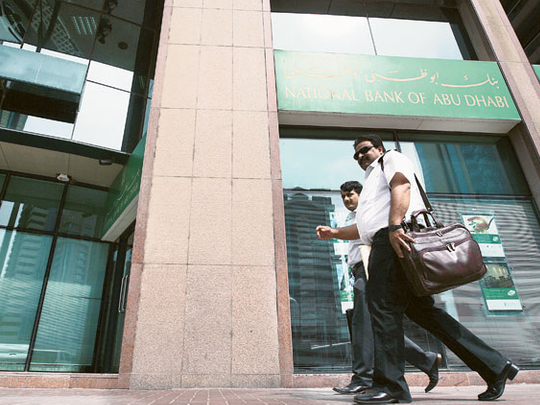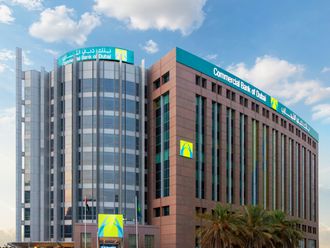
Dubai: Banks in the GCC and wider Middle East are adequately capitalised to meet the fallout from a global economic slowdown or a double-dip recession, according to analysts.
Christine Lagarde, the new managing director of the International Monetary Fund (IMF) on Sunday warned that the world economy is in a dangerous phase and that officials should take new steps to strengthen growth. She called on European authorities to boost capitalization levels of European banks to prevent the sovereign debt crises of some countries from infecting more countries.
While calling on European banks to fortify their capital bases, Legarde said that decoupling between emerging economies and developed economies is a myth and warned that if the advanced countries succumb to recession, the emerging, markets will not escape.
Commenting on the IMF chief's warnings, analysts said the Middle East's banking sector in general and the GCC's banking sector in particular are better prepared for a global economic slowdown.
"We continue to believe the Middle East and North Africa [Mena] banks are well capitalized, and are in a much better shape than US and European banks, said Jaap Meijer, Head of Banks Research at HC Securities
"We estimate Qatar banks will have core equity Tier-1 capital in the range of 12.5 per cent to 23 per cent next year, Egypt banks in the range of 13 to 15 per cent, Saudi banks 13.5 per cent to 15.8 per cent, Lebanese banks 9.1 per cent to 12.4 per cent and UAE banks 8.7 per cent to 16.5 per cent," he said
GCC banks in general have high capitalisation levels exceeding the Basel II requirements and in many cases the regulatory capital requirements are above the Basel III requirements.
"In spite of some exceptions, we think the banks in the Gulf are well capitalized overall. First of all, the banks have very strong regulatory capital ratios, significantly above the minimum requirements. For banks in Abu Dhabi, the regulatory ratios are in the high teens and in some cases up to 20 per cent," said Goeksenin Karagoez, a rating analyst with Standard & Poor's. The new Basel III capital requirements require 7 per cent core tangible equity, while another 2.5 per cent on top of that is demanded for globally systemic banks.
Analysts said the UAE's regulatory minimum requirements are already high compared with those in the rest of the world and already above the minimums in the Basel III proposals.
In Saudi Arabia the composition of capital shows that a vast majority of capital relates to high quality common equity and reserves. The somewhat weaker performance in the last couple of years adversely affected banks' internal capital generation. But the strong funding profiles of banks and relatively low dependence of market funding is considered a key strength for Saudi banks. Customer deposits account for the bulk of non-equity funding.
The overall quality of Gulf banks' equity base is strong, which will help many of them to implement Basel III with ease. Their high proportion of Tier 1 capital means that they rely much less on Tier 2 and issued much less hybrid capital than what is the case with banking systems in in the rest of the world, especially in the Eurozone.










